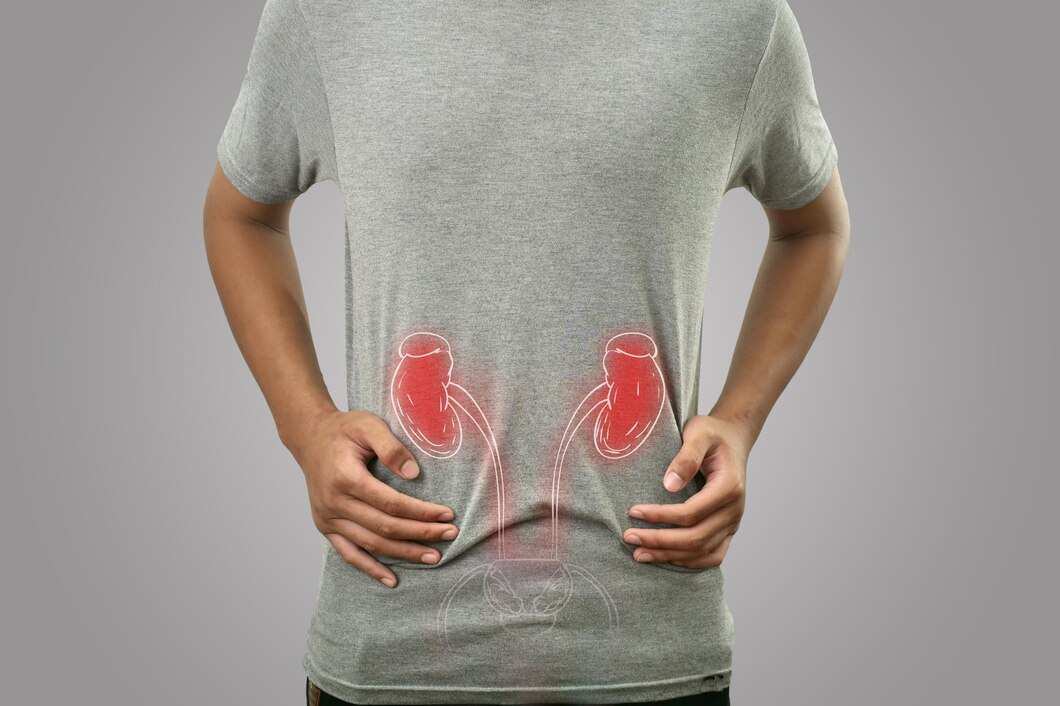Symptoms of Kidney Stones: When to Seek Medical Help
What is a Kidney Stone?
Kidney stones are hard, crystal-like deposits that form inside the kidneys. They are made up of minerals and salts that build up in the kidneys. There are many reasons why kidney stones can develop. Your diet, being overweight, certain medical conditions, and some medications or supplements can all increase your risk of getting kidney stones.
Kidney stones can form anywhere in the urinary system, from the kidneys to the bladder. They often develop when there is too much of certain minerals and salts in the urine, causing them to crystallize and stick together.
Symptoms of Kidney Stones
These stones usually don't cause any problems until they start to move around within the kidney or pass into the tubes (called ureters) that connect the kidneys to the bladder. When a kidney stone gets stuck in the ureter, it can block the flow of urine. This can cause the kidney to swell and the ureter to spasm, which can be very painful. At this point, you may experience the following symptoms of kidney stones:
- Intense, acute pain in the side and back, located below the ribs.
- Pain that extends to the lower abdomen and groin.
- Pain that comes in waves and fluctuates in intensity
- Having a burning or pain while urinating
- Urine that is pink, red, or brown
- Cloudy or foul-smelling urine
- Frequent urination, increased frequency of urination, or urinating in small quantities.
- Nausea and vomiting
- Fever and chills if an infection is present
When to See a Doctor
- Persistent or severe kidney stone symptoms: If you have symptoms that are persistent, severe, or worsening, it's important to seek medical attention. This could include symptoms such as severe pain, high fever, persistent cough, or unexplained weight loss.
- Changes in your health: If you experience sudden changes in your health, such as unexplained weight loss, changes in bowel or bladder habits, or unexpected changes in energy levels, it's important to consult a doctor.
- New or unusual symptoms: If you experience new or unusual kidney stone symptoms causing concern, it's best to get them checked by a healthcare professional.
- Follow-up on existing health conditions: Regular follow-up visits are essential for managing chronic conditions and ensuring that your treatment plan is effective.
- Routine check-ups and screenings: It's important to see a doctor for routine check-ups, screenings, and vaccinations to maintain your overall health and well-being.
Why Do Doctors Examine The Contents of the Stone?
Doctors examine the contents of a passed kidney stone for the following reasons:
To determine the type of stone:
- There are four main types of kidney stones: calcium oxalate, uric acid, struvite, and cystine.
- Studying the composition of the passed stone can help identify the specific type.
To understand the cause:
- Knowing the stone type provides clues about why the stone formed in the first place.
- Different stone types are associated with different underlying causes, such as diet, genetics, infections, etc.
To guide prevention and treatment:
- The stone analysis helps the doctor determine the best approach to prevent future stone formation.
- Dietary and lifestyle modifications can be tailored based on the specific stone composition.
- The treatment plan may also be adjusted based on the stone type.
Related: Diet for Kidney Patients: Foods to Include and Avoid
Kidney stones are a common yet painful condition that can affect anyone, though certain lifestyle factors, dietary habits, and medical conditions significantly raise the risk. Recognising the early symptoms and seeking prompt medical attention can help prevent complications such as infections or damage to the kidneys.
Understanding the type and cause of the stone plays a crucial role in both treatment and prevention. Doctors can tailor your diet, recommend hydration strategies, or prescribe medications based on the stone’s composition. This personalised approach not only treats the current condition but also reduces the likelihood of recurrence.
If you’ve had a kidney stone once, you’re at higher risk of getting another. So, regular check-ups, a balanced diet low in salt and oxalate, and staying well-hydrated can go a long way in maintaining kidney health.
Staying informed, taking preventive measures seriously, and consulting with a healthcare provider when symptoms arise can make all the difference. Don’t ignore warning signs, your kidneys deserve your attention.
